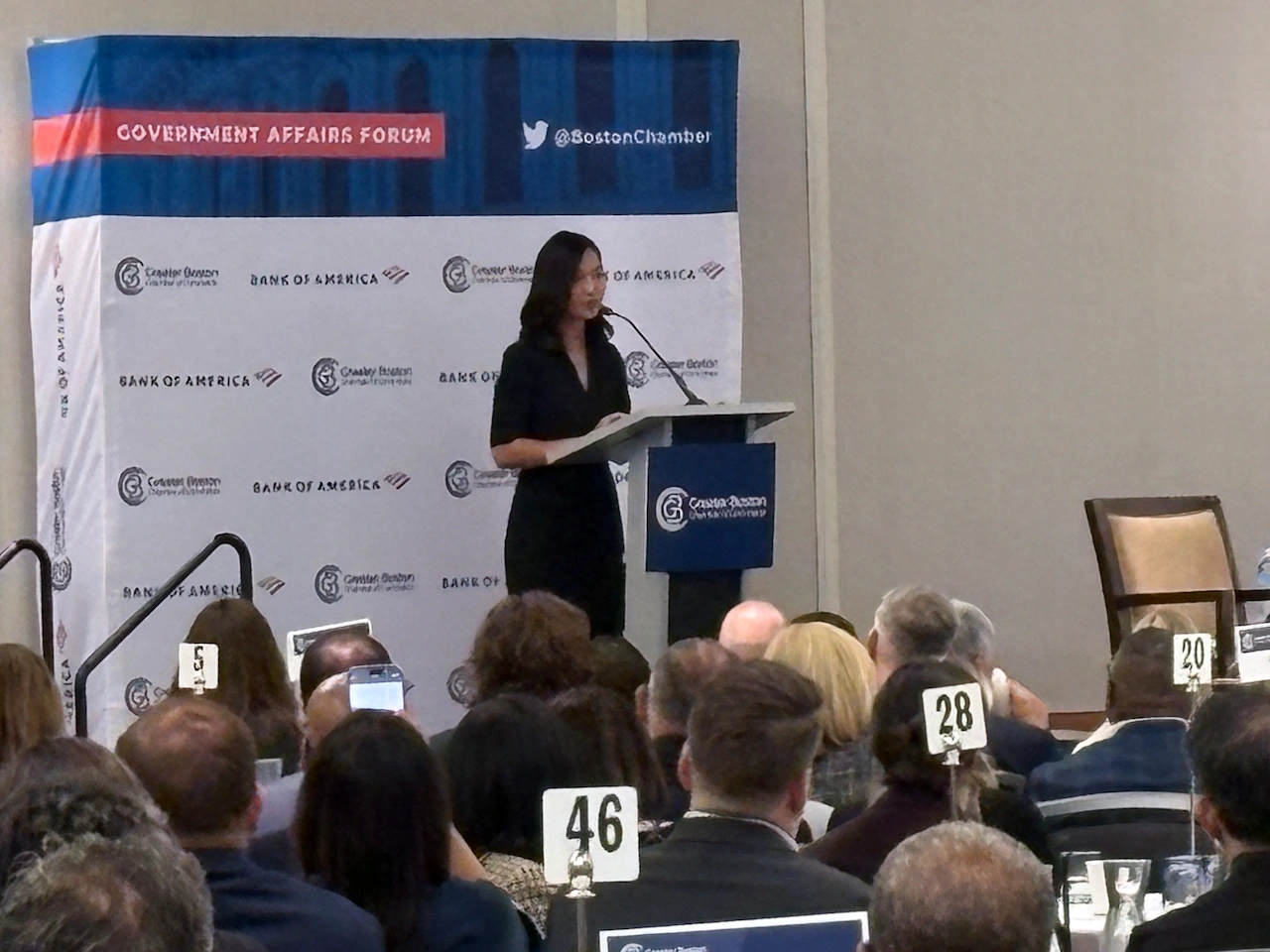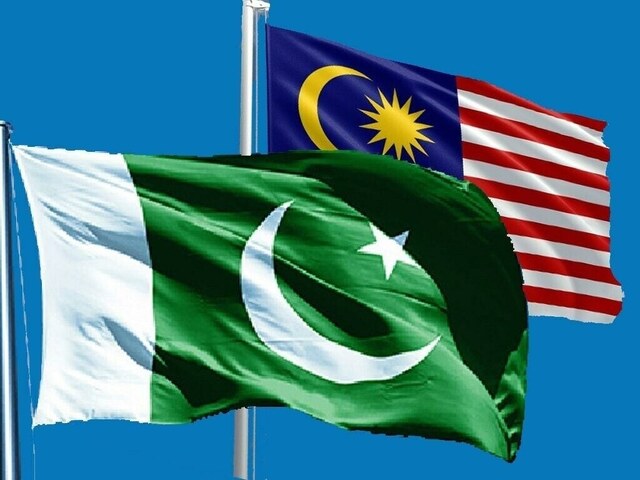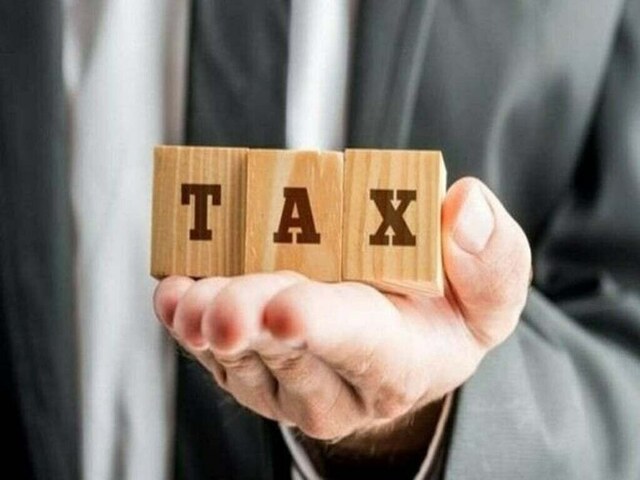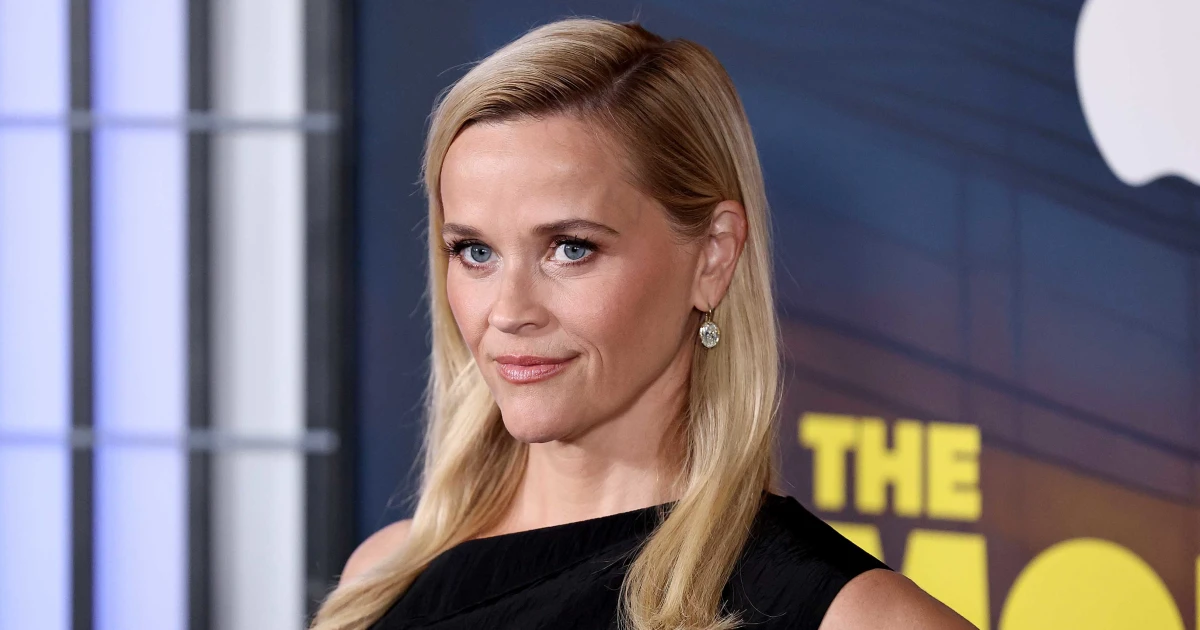‘This is our city’: With one election over, Wu makes pitch to bring Boston biz leaders onside

It wasn’t exactly a trip to the lion’s den, but it might have been close.
Fresh off her decisive win over philanthropist Josh Kraft during the city’s preliminary election on Sept. 9, Boston Mayor Michelle Wu had a simple message for the 600-plus business leaders who’d gathered in a hotel ballroom on Monday morning to hear her speak.
In the face of ongoing assaults by the Republican Trump administration, the Democratic mayor and the business community, some of whose members had actively worked for her defeat just weeks earlier, needed to find common ground.
But to get there, and for the city to remain competitive, and to continue to attract such iconic names as Lego and Hasbro, there would have to be some give and take, Wu seemed to suggest.
“Today I want to focus my remarks on what competitiveness actually means,” she said during remarks before the Greater Boston Chamber of Commerce at the Renaissance Boston Seaport District hotel on Monday morning.
“[It’s] not clinging on to corporate tax cuts on the backs of Boston’s homeowners and seniors. [It’s] not trying to undo the Millionaire’s Tax and revenue sources to strain state and municipal budgets,” she continued, alluding to a hard-fought, and ultimately unsuccessful, push for a controversial tax shift scheme that ran aground on Beacon Hill last year.
“Even further, competitiveness [means] recruiting and promoting top talent, building up the community and workforce that any company would want to consider relocating to join,” Wu said.
Over remarks that stretched to about 45 minutes, Wu reiterated themes from the spring and summer campaign: That Boston remains one of the safest large cities in the nation; that it won’t back away from its restrictions on working with federal immigration officials, and that the city remains a magnet for high-tech and health care employers.
“When I say Boston won’t back down from being a beacon of freedom, I’m talking about standing strong to protect and recruit scientists and engineers and researchers, immigrant innovators and essential workers, and every American seeking a welcoming community where we are free to live our lives in full bloom and give our all to the next big idea that can change the world,” Wu said at one point.
Wu never mentioned Kraft, the son of New England Patriots owner Robert Kraft, by name on Monday. But one thinly veiled jab was tough to miss.
As she started her speech, Wu offered her thanks to Miceal Chamberlain, a top Bank of America executive and chamber official, who’d introduced her.
She congratulated the bank for the $100 million loan it had extended to Boston Legacy FC of the National Women’s Soccer League for the reconstruction of White Stadium in the city’s Franklin Park.“So our professional women’s soccer team will join with the city of Boston, and after decades of broken promises and failed plans, we will finally redevelop White Stadium to give our Boston public school students what they deserve, which is the very best,” she said. Wu and Kraft sparred repeatedly, and often bitterly, throughout the preliminary election campaign on the cost and scale of the stadium project and the access that would be granted to the city’s public school students, who have practiced and played games there for years. The Democratic mayor ended her formal remarks to the second of two standing ovations, telling the crowd: “This is our city, and I look forward to continuing to build it up with all of you.”The second standing ovation came more readily than the first, when the crowd was slower to rise to its feetStill, if there was any lingering tension between Wu and business leaders, it was evidenced only by polite but specific queries from the chamber’s CEO, James E. Rooney, during a Q&A session after Wu finished her remarks. That was particularly clear in a back-and-forth on taxes, with Rooney pointing out that “there’s always a balance to be achieved in taxation.”“Whether it’s personal income tax, business tax, there’s always a balance. And, you know, in the world of competitiveness, people who decide to bring their businesses … here it’s a fact that they look at,” he continued, asking Wu if there was somewhere “maybe we need to pump the brakes.”Miceal Chamberlain, a top Bank of America executive who’d introduced her.
Wu responded with a blizzard of data, using it to challenge business leaders to “use our political capital, including the business community’s very, very important political capital on what issues you’re taking on, whether it’s at the state Legislature and statewide policy or at the city [level].“
And though it wasn’t clear on Monday whether Wu would run unopposed for a second term in November, or face a challenge from community activist Domingos DaRosa, who’d finished third and pressed for a recount, Rooney seemed to settle the matter.
“We look forward to working with you over the next four years,” he said.



